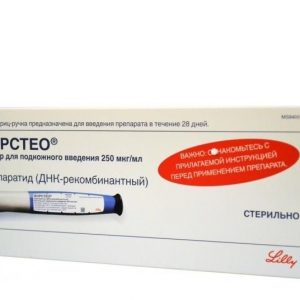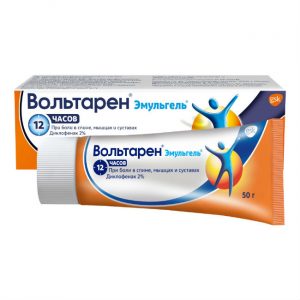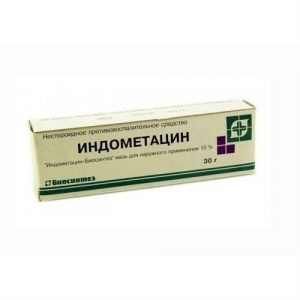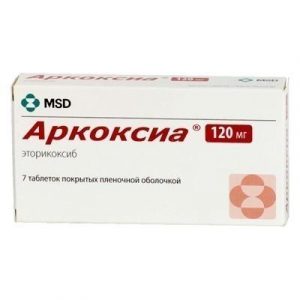Description
Release form
Tablets
Pharmacological action of
NSAIDs, a selective COX-2 inhibitor. Belongs to the class of oxycams, is a derivative of enolic acid. It has anti-inflammatory, analgesic and antipyretic effects. The mechanism of action is associated with a decrease in prostaglandin biosynthesis as a result of inhibition of the enzymatic activity of COX. At the same time, meloxicam more actively affects COX-2, which is involved in the synthesis of prostaglandins in the focus of inflammation, which reduces the risk of side effects on the upper gastrointestinal tract and slightly affects COX-1.
At the same time, meloxicam does not affect the synthesis of proteoglycan by chondrocytes of the articular cartilage, does not affect the development of spontaneous arthrosis in rats and mice, which indicates its chondroneutrality.
Indications
Inflammatory and degenerative joint diseases (arthrosis, osteoarthritis), rheumatoid, ankylosing spondylitis (ankylosing spondylitis).
Pregnancy and lactation
Contraindicated in pregnancy.
If necessary, use during lactation should decide on the termination of breastfeeding.
In experimental studies, no teratogenic effect of meloxicam was detected.
Special instructions
Caution is used in patients with a history of gastrointestinal diseases.
Composition
Tablets 1 tablet
active substance:
meloxicam (in terms of 100% dry matter) 15 mg
excipients: lactose monohydrate (200) – 122.7 mg MCC (101) – 30.6 mg sodium citrate – 1.8 mg povidone (K17 ) – 4.5 mg crospovidone – 1, 8 mg silicon colloidal dioxide (Aerosil) – 1.8 mg magnesium stearate – 1.8 mg
Dosage and administration of
Inside, 7.5-15 mg once a day. The maximum daily dose is 15 mg.
Topically applied 2 times / day. Apply a thin layer on clean, dry skin over the lesion and rub lightly over 2-3 minutes.
Side effects
From the digestive system: dyspepsia, nausea, vomiting, abdominal pain, constipation, intestinal colic, diarrhea, esophagitis, stomatitis rarely – erosive and ulcerative lesions of the gastrointestinal tract.
From the central nervous system: dizziness, headache, tinnitus.
From the cardiovascular system: increased blood pressure, palpitations, swelling, hot flashes.
From the urinary system: changes in laboratory parameters of kidney function.
From the hemopoietic system: anemia, leukopenia, thrombocytopenia.
Allergic reactions: bronchospasm, photosensitivity, pruritus, rash, urticaria.
Drug Interactions
With simultaneous use, a decrease in the effectiveness of antihypertensive drugs (beta-blockers, ACE inhibitors, vasodilators) is possible.
When used simultaneously with anticoagulants, the risk of bleeding increases.
When used simultaneously with diuretics, the risk of developing renal failure in patients in a state of dehydration is increased.
With concomitant use with NSAIDs, the risk of developing gastrointestinal ulcerative lesions and gastrointestinal bleeding increases.
With simultaneous use with lithium preparations, the concentration of lithium in the blood plasma increases.
With the simultaneous use of colestyramine accelerates the excretion of meloxicam.
When used concomitantly with methotrexate, it is possible to increase the myelodepressive effect with cyclosporine – it may increase the nephrotoxic effect of cyclosporine.
Overdose
Symptoms: impaired consciousness nausea, vomiting, epigastric pain, gastrointestinal bleeding, acute renal failure, liver failure, respiratory arrest, asystole.
Treatment: symptomatic therapy, gastric lavage, administration of activated carbon. Forced diuresis, alkalization of urine, hemodialysis are ineffective due to the high connection of the drug with blood proteins. There is no specific antidote.
Active ingredient
Meloxicam
Prescription conditions
pharmacy Prescription
Dosage form
tablets




